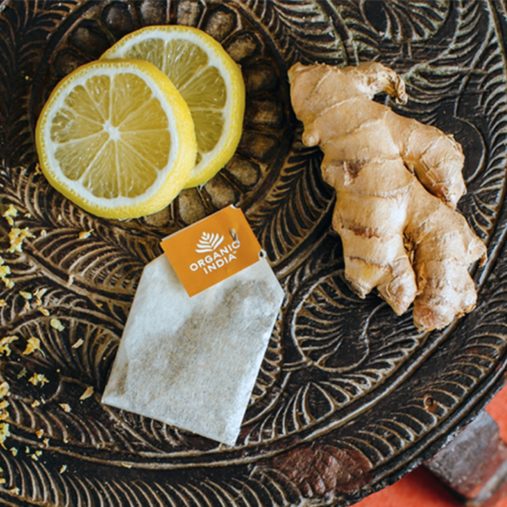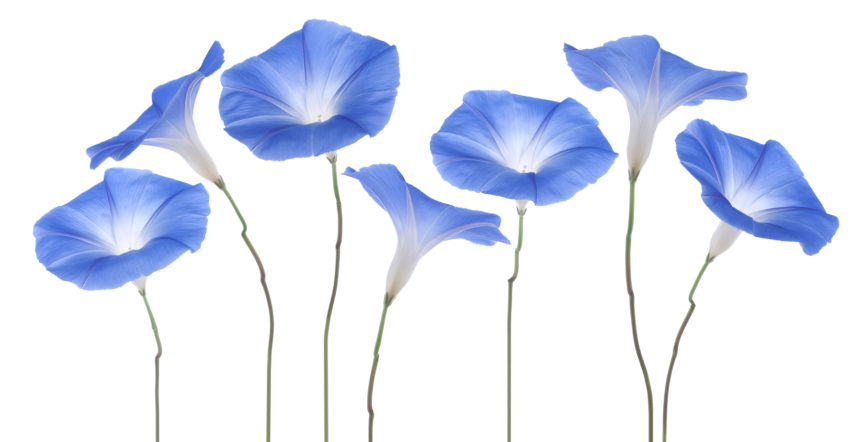Back
Known as Mangalyakushuma in Sanskrit, the ancient Ayurvedic herb Shankpushpi does what its name implies — it brings good health (and maybe even good fortune). Ayurvedic practitioners consider it to be a special gift from nature. This milky-white flowered plant, known in the West as Morning Glory, is used for increasing longevity, boosting the memory, improving the intellect, feeding nerves, and even expanding one’s worldview. Shankpushpi is as much of a bodily tonic as it is a mental and spiritual invigorator.
Ayurveda’s approach to healthcare, which incorporates what we now call psychology, is vastly different from Western schools of thought. Indian doctors have long realized that what affects the body also affects the mind, and what exists in the spiritual realm, manifests in the physical. Therefore, each herb and plant is used in a holistic way rather than merely targeting a specific health problem. When it comes to mental and emotional issues, Ayurvedic healers rely on Shankpushpi, a plant that was discussed more than two thousand years ago by the sage-physician Charaka, who wrote the Charaka Samhita, one of the most famous and cherished medical treatises in Ayurveda.
Nootropic Plants and Brain Health
Indian doctors refer to Shankpushpi as a Medhya Rasayana — a plant that supports memory. Today, we use the term nootropic to describe herbs such as Shankpushpi. Included under the umbrella of nootropic plants are brain tonics, memory boosters, and cognitive enhancers. Researchers have reported that nootropics work by increasing the supply of neurochemicals, such as neurotransmitters, enzymes, and hormones, in the brain. Memory-boosting herbs increase the level of neurotransmitters, which are chemical messengers responsible for increasing oxygen to the brain and stimulating nerve growth. As a nootropic, Shankpushpi has been scientifically shown to be especially effective in retrieving long-term memories.
Lakshmi C. Mishra, author of Scientific Basis for Ayurvedic Therapies, wrote that traditionally, Vedic knowledge was shared by means of oral instruction. Teachers required students to retain and recall complex ideas by repeatedly reciting what they had learned. This linked intelligence to memory, so it became common practice to use certain plants to enhance memory, increase concentration for long hours of study, and reduce the time needed to absorb new concepts. Shankpushpi is one of a few brain-vitalizing herbs recommended in ancient texts to bolster a student’s ability to learn, study, and retain what they had been taught.
Meditation and Shankpushpi
One of the cornerstones of spirituality throughout the world is meditation. The enlightened sage Ramana Maharshi said, “Your concentration must come as easily as the breath. Fix yourself on one thing and try to hold onto it. All will come right. Meditation is sticking to one thought. That single thought keeps away other thoughts. The dissipated mind is a sign of its weakness. By constant meditation it gains strength.”
Many generations ago, gurus realized that relaxing qualities of Shankpushpi enable the brain to settle down to allow meditation to free the mind from distractions.
In the Huffington Post, Carolyn Gregoire explained that India’s most popular export is yoga (Sanskrit for “divine union”), a practice that has been passed down from guru to student for many centuries. Traditionally, yoga has focused on stilling the thoughts of an unruly mind with the goal of achieving moksha (liberation). In the last couple of centuries, as a unifying practice, yoga has expanded to include not only mental and spiritual benefits, but physical ones as well. Shankpushpi is a helpful aid for yoga practitioners in every aspect of their artform — from mindfully performing asanas (postures) to sitting in child’s pose or meditation at the close of the session.
There are a number of meditative practices, and those requiring concentration, a sharp mind, or deep thought, are enhanced by Shankpushpi. Many generations ago, gurus realized that relaxing qualities of Shankpushpi enable the brain to settle down so that meditation can free the mind from distractions. As of late, modern science has shown that this amazing plant controls the production of certain hormones like cortisol and adrenaline related to stress and anxiety. As a psycho-stimulant, Shankpushpi simultaneously improves attention and cognition.
Shankpushpi and the Doshas
There are three main types of beingness, according to Ayurvedic philosophy. These are called doshas and comprise the Vata, Pitta, and Kapha types. Each of these doshas can also be applied to the quality of plants, as well as how those plants relate to an individual’s dosha. Ayurveda has shown that excess Vata leads to minds that are active with too many thoughts, making it difficult to physically and mentally relax. To help things along, Shankpushpi may be used to relieve brain stress, enjoy deeper states of sleep, and calm down the wandering mind.
Ayurvedic practitioners note that Shankpushpi brings all three doshas into balance and works especially well on Vata and Pitta disorders. The plant’s natural oily and sticky qualities pacify Vata, while it’s cool aspects pacify Pitta dosha, and its bitter taste pacifies Kapha types.
Staying Sharp
It may seem that staying sharp and relaxing the mind are opposing ideas, but when we consider how the mind works, it becomes clear that both are needed for optimal mental health. Shankpushpi is an ancient discovery that continues to serve those who recognize the importance of improved memory and the capacity to learn, hold onto information, and focus on the present. The plant is useful for absorbing and retaining what you have learned, opening the mind during meditation, being present in yoga practice, and any other endeavor requiring a unification of mind, body, and spirit.






